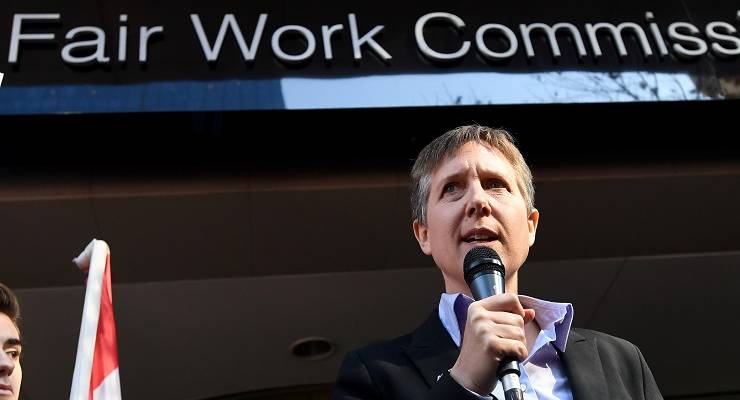
In The Daily Fix, Crikey taps into the wisdom of experts and community leaders to find solutions to problems. This week: wage theft.
It’s no coincidence that the emergence of the wage theft crisis has coincided with conservative governments blocking unions from conducting spot checks and inspecting pay records in workplaces, while at the same time attacking the rights of working people to have fast and effective recourse when employers break the law.
In order to address this crisis we need to put in place tougher penalties for employers who steal wages, change the system so that working people can quickly and cheaply claim back any money which has been stolen and are secure to raise concerns about potential wage theft without fearing for their jobs.
We also need to allow unions to conduct spot checks where they can inspect pay records and hold employers directly accountable for paying their staff correctly.
The discussion paper circulated by the Morrison government does not commit to any of these important reforms.
Sally McManus is the secretary of the Australian Council of Trade Unions.







Wage theft is a feature, not a bug.
I used to subscribe to the view that prison should be reserved for violent offenders, but it is now undeniable that law-breaking (with the consequential feeble fines, if any) is simply part of the business model for these crooks. Hence, I say: “Lock them up, lock them up.”
Better surveillance should be the top priority – I’m not sure tougher penalties are much of an incentive against doing it if the likelihood in getting caught is low. What’s clear, though, is that as it stands the equation is strongly in favour of ripping off workers, and that needs to be addressed ASAP.
I admire the fight in you, Sally M! Of course you are correct.
Time to get the Labor party onside…and make sure they take some meaningful policies on industrial relations to the next election.
Otherwise we are all cactus!!!!!
It was only back in the 1980’s when we had inspectors of award pay and conditions employed by state and federal government industrial relations departments.
They visited workplaces to inspect the books. Unions at the same time had access to employer premises to check correct pay and conditions were being practiced also.
Various states sought the employers to be given notice of a looming government inspectors visit. Even then, shonky employers were revealed, often being given an ‘out’ in order to rectify any short payments or award breaches.
Departments could mount an industrial case to bring the employer in to an industrial court, and legal costs, time off work and potential fines were all disincentives.
An independent umpire, the industrial court, would hear both sides of the story, and either direct the parties to conciliate the matter using a lower cost court appointed conciliator, or be directed to proceed to costlier arbitration, where a binding ruling would be applied by the court.
Visiting Overseas IR specialists most often admired our independent umpire system, that exercised legally defined powers and penalties.
The system largely, worked. Wage theft did not occur on any significant scale, and union members had recourse to conciliation. The LNP habitually hated the industrial courts, which interfered with the “Let the market run free” and let-our-mates-rip-away ideologues.
The unions no longer have workplace access to assess pay and conditions, the inspectors have gone, and like the building industry, the cracks are now visible. We have become a nation of wage thieves, how pathetic.